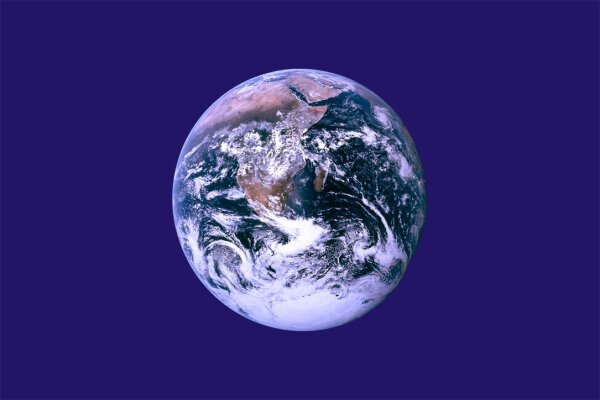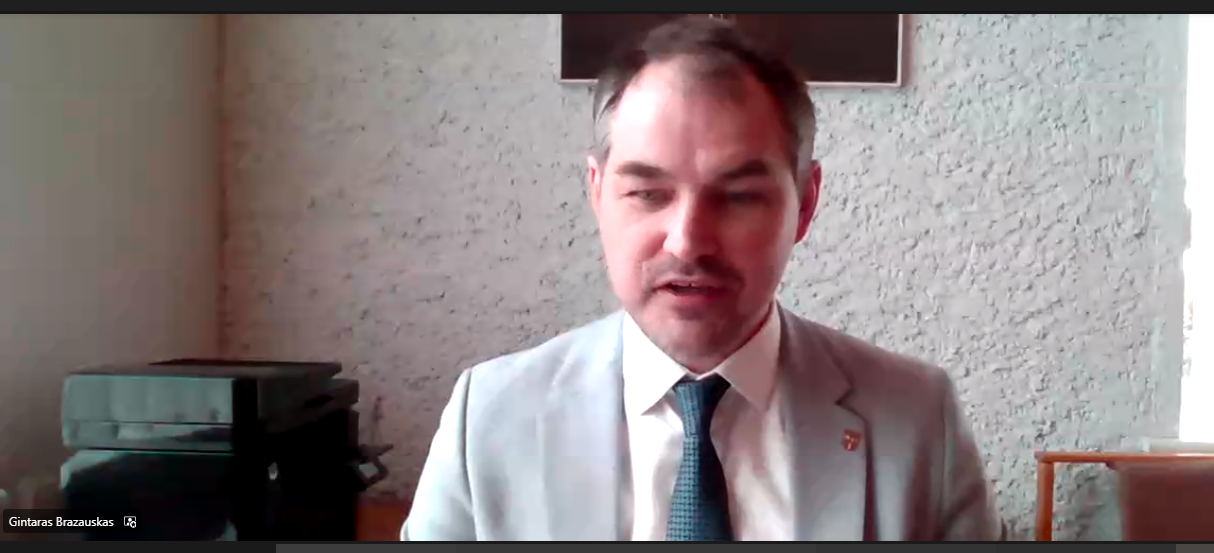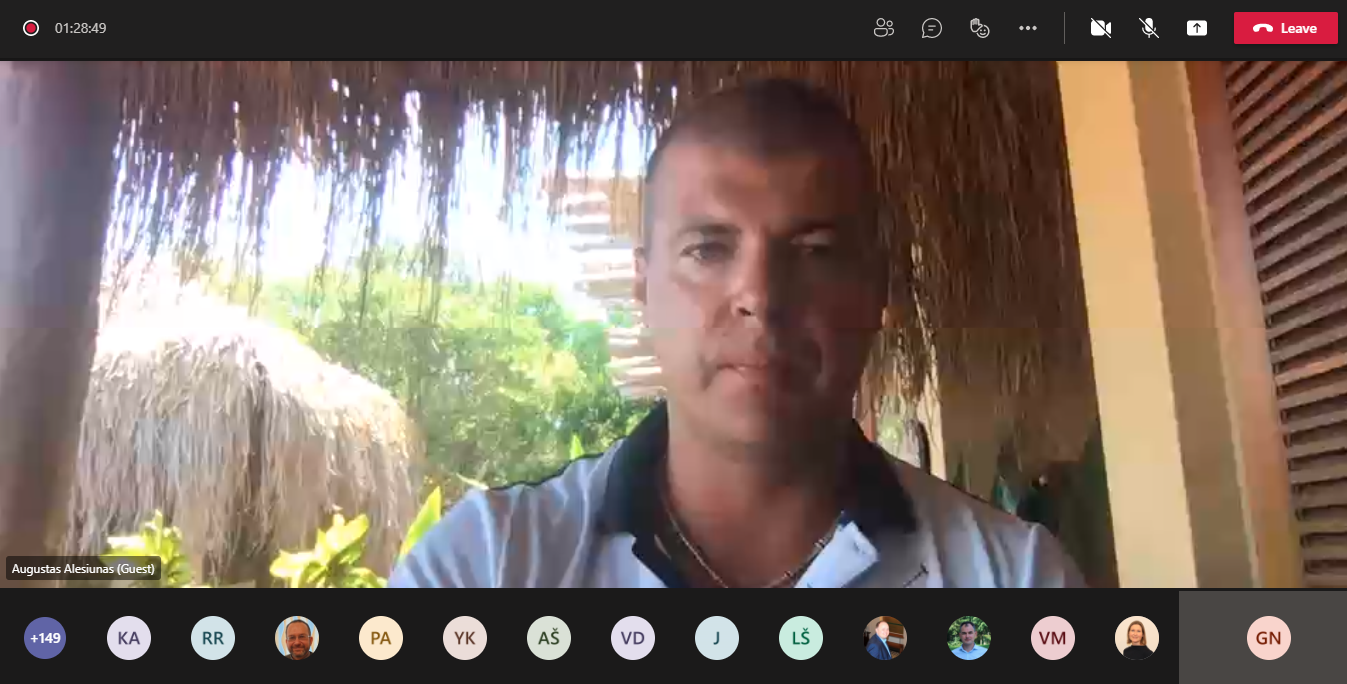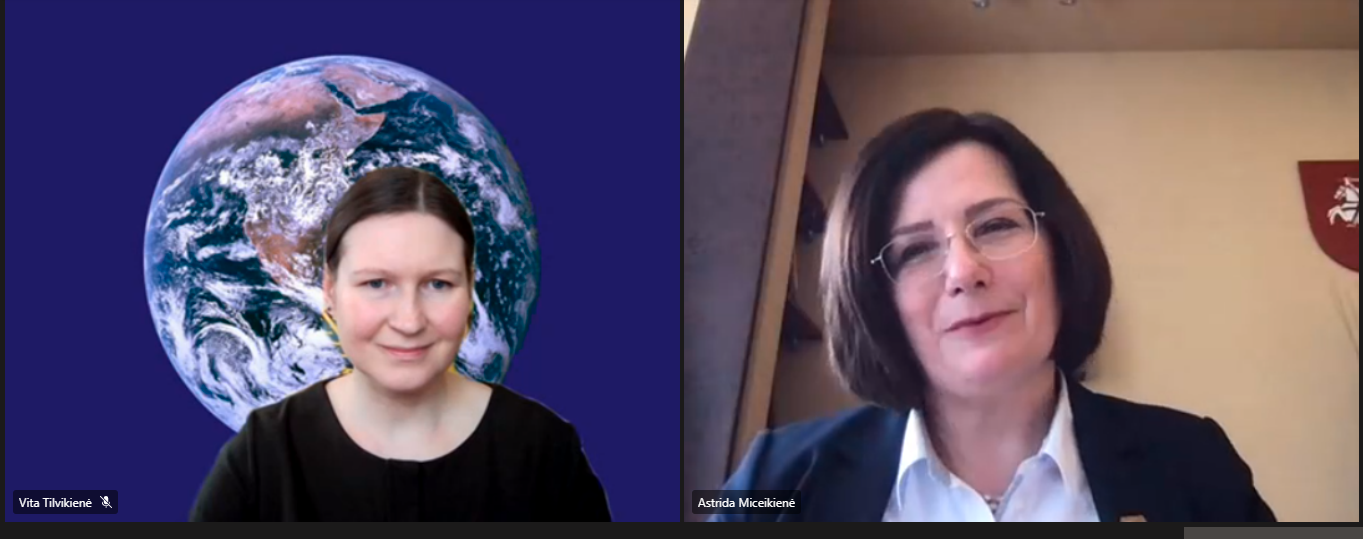
The World Earth Day was first commemorated in 1970. LAMMC Deputy Director for Science Dr. Vita Tilvikienė has emphasized that the annual conference of the Lithuanian Research Centre for Agriculture and Forestry, dedicated to this occasion, has become a tradition. This time, the conference is focused on the wider application of digitisation and artificial intelligence. On March 19, the virtual conference “Digitisation and Artificial Intelligence in Agriculture – from Idea to Practice” designed to mark the Earth Day attracted more than 160 participants.
“In order to optimize agricultural processes, mitigate climate change, it is necessary for a modern farmer and agricultural researcher to be interested in the possibilities of greening and digitisation of activities”, says LAMMC Director Dr. Gintaras Brazauskas.

Possibilities of artificial intelligence in agriculture
In his presentation, Head of the Artificial Intelligence Laboratory and the Intelligent Technologies Research Group of the Institute of Data Science and Digital Technologies, Vilnius University, Dr. Virginijus Marcinkevičius talked about what artificial intelligence is and how it has developed. He pointed out that artificial intelligence can be used in agriculture for yield forecasting, disease control, weed detection, soil moisture and crop quality determination, seed species identification. It can also be used in animal husbandry.
Digitisation: scales for financial and environmental sustainability
In his presentation, Augustas Alešiūnas, the Director of the Information Technology Solutions Company “Art21” emphasized that the introduction of technologies in the agricultural sector is insufficiently fast. In his view, new agricultural models that would facilitate striking a balance between the environmental sustainability and profitability of the agricultural sector during the digitisation process are needed.

Precision farming in Lithuania
Lukas Šapranauskas, Head of the Precision Farming and Service Competence Centre of the Lithuanian Agricultural Advisory Service, presented the most important principles of precision farming: the right time, the right machinery, the right rate, the right material. They are determined using satellite and aerial-range data, automatic and parallel steering, precision sowing, yield maps and other precision farming tools.
Cooperation is a prerequisite for the development of digitisation in agriculture
Vice President of the Lithuanian Academy of Sciences Prof. Dr. habil. Zenonas Dabkevičius emphasized that the promotion of interdisciplinary research provides an opportunity to digitise agriculture faster. The Chancellor of Vytautas Magnus University Agriculture Academy Prof. Dr. Astrida Miceikienė agreed with this idea and stressed that as agricultural business models change, it is necessary to constantly learn and master new technologies – business, science and decision-makers must rally to work together.

Head of the Department of Soil and Crop Management of the Institute of Agriculture Dr. Virginijus Feiza highlighted the importance of cooperation not only between the country’s agricultural representatives, but also between research and study institutions of various countries. One of the examples is the EJP SOIL project of the international program, which is carried out by LAMMC using unmanned aerial vehicles.
Deividas Pečiukėnas, Director of the agro-innovation company “Luxera”, emphasized that combining handwork with modern technologies can increase the efficiency of family farms. According to Ilma Rimkevičienė, Head of the Information Technology Department of the Lithuanian Agricultural Advisory Service, communication with the end user of technologies, especially by providing benefits based on science and practice to agricultural entities is extremely important.